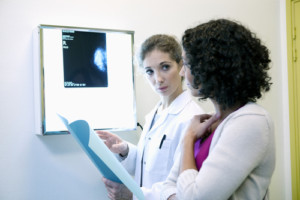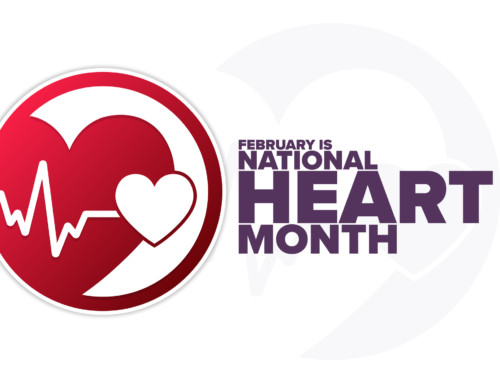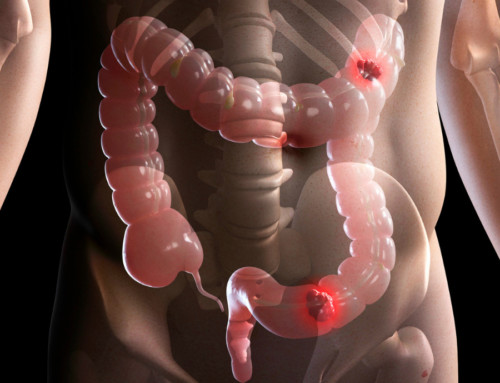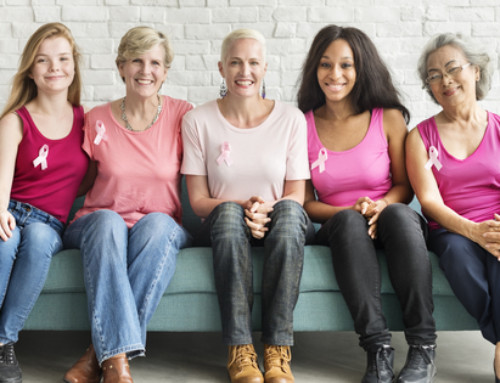 Although breast cancer awareness has increased over the past several years, with popular events like Breast Cancer Awareness Month aiming to provide in-depth education about the disease, many cultural misconceptions still exist.
Although breast cancer awareness has increased over the past several years, with popular events like Breast Cancer Awareness Month aiming to provide in-depth education about the disease, many cultural misconceptions still exist.
We understand it can be hard to know what’s true when it comes to breast cancer, so we’re providing information to dispel some of the most common rumors we hear. Being better informed about this disease could ensure you and your loved ones are in a better position to spot the earliest warning signs and symptoms.
MYTH: Women Are Only At Risk for Breast Cancer if They Have a History of the Disease in Their Immediate Family.
The common discussion surrounding genetic connections to breast cancer involves several aspects worth unpacking. First, it’s crucial to understand that in most cases, breast cancer is not caused by genetics. In fact, only 5-10% of diagnoses are marked by the presence of the BRCA1 or BRCA2 gene, which can provide an early indication of overall breast cancer risk.
Because genetic history is not a reliable predictor, it is important to continue regular checks and screenings, regardless of family history. On the flip side, remember that breast cancer within your family does not automatically signify that you will eventually be diagnosed with breast cancer.
MYTH: Only Women Can Receive a Breast Cancer Diagnosis Because Men Do Not Have Breast Tissue.
While it is true that breast cancer mostly affects the female population, men can be afflicted with breast cancer. Although breast tissue in men is composed differently than in women, cancerous cells can still develop.
The Susan G. Komen Breast Cancer Foundation reports that in 2015, roughly 2,350 new cases of invasive breast cancer were anticipated among men, and over 400 of those cases were expected to be fatal. Diagnoses in men can have a higher mortality rate, since many men may assume that they cannot have the disease or that their symptoms have another cause, delaying diagnosis and treatment.
MYTH: Breast Cancer Can Be Caused by Consuming Milk or Dairy Products.
Although maintaining a healthy diet and weight can reduce a person’s overall cancer risk, there is little to no substantiation for the myth that drinking milk or consuming dairy leads to breast cancer.
The underlying worry here concerns the hormone treatments that are often part of the production process for dairy-based products. However, according to the American Cancer Society, recent studies have failed to establish a link between these hormones and breast cancer risk.
MYTH: Underwire Bras and Deodorant Products Increase the Risk of Developing Breast Cancer.
The fear surrounding certain types of bras and deodorants is also largely unfounded when it comes to establishing a direct link to breast cancer. This myth arose from the assumption that bras and deodorants may restrict lymph fluid drainage in breast tissue, therefore leading to a buildup of toxins.
There is also the concern that certain ingredients in antiperspirants, such as aluminum, increase cancer risk. Fortunately, fear surrounding these products is unfounded from a medical standpoint.
MYTH: Breast Cancer Is Always Indicated by a Palpable Lump in the Breast Tissue Found Upon Examination.
Although it’s important to pursue screening for any suspicious lump in your breasts, lumps are not the only warning signs of cancer growth. In fact, six of the eight breast cancer warning signs are can be seen only and not felt. Doctors recommend being familiar with your breasts so that you can detect changes in them.
Any unusual change in the breast such as skin irritation, dimpling, redness, or discharge should be carefully and promptly evaluated by a doctor or specialist. Ignoring these visual cues — lump or not — could delay proper diagnosis and treatment.
Know the Facts
The most important tool in your fight against breast cancer is awareness. Understanding basic myths and misconceptions — and the truth about them —has the potential to save your life. Make time to visit your Tri-City Medical doctor for regular health screenings, and pursue medical counsel for any unexpected changes in your body, whether they happen suddenly or over a period of time. If you’d like to schedule a mammogram screening, you can do so here.





